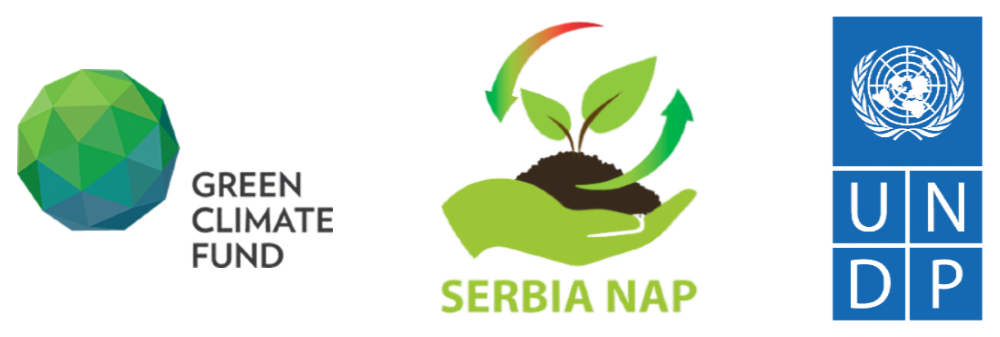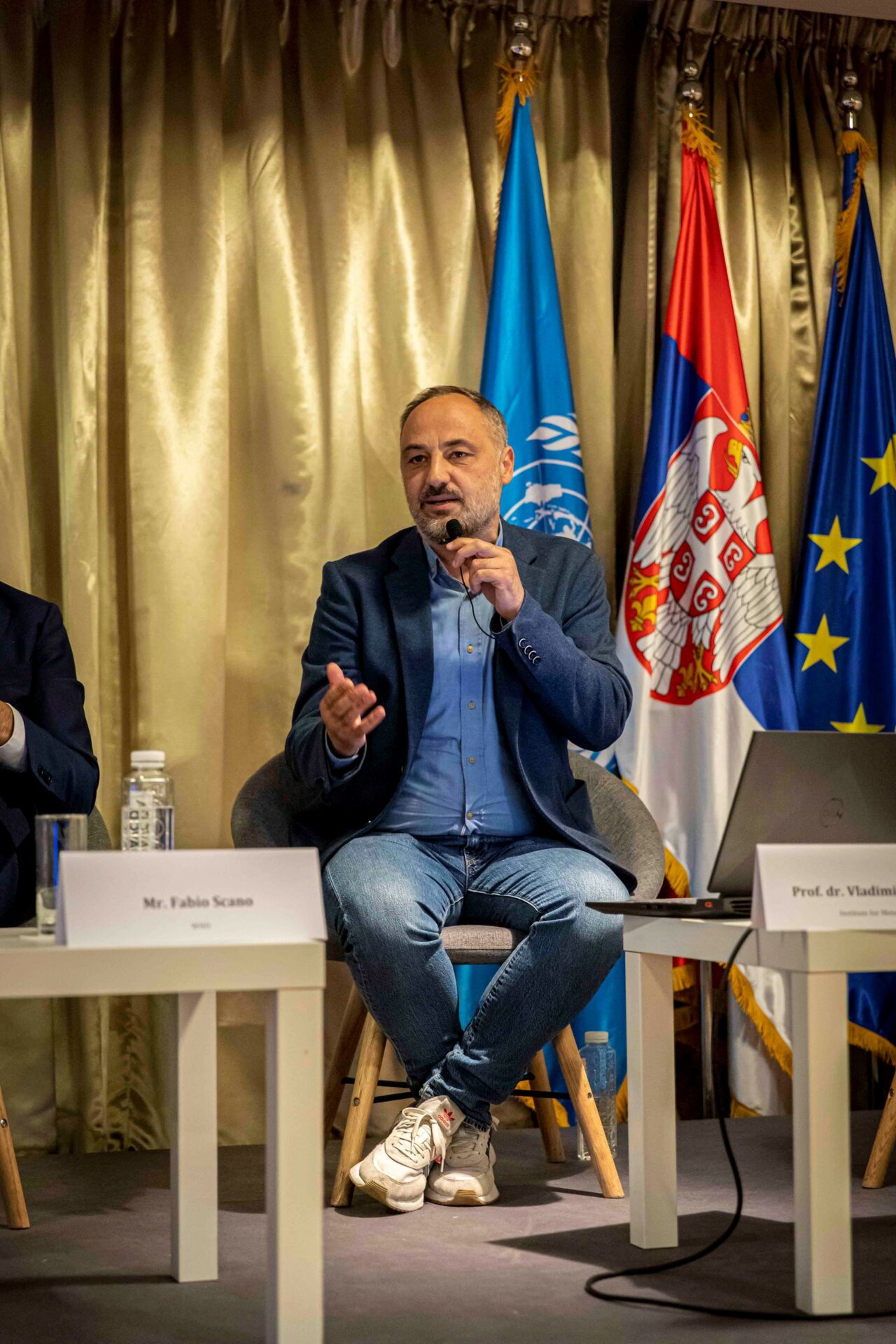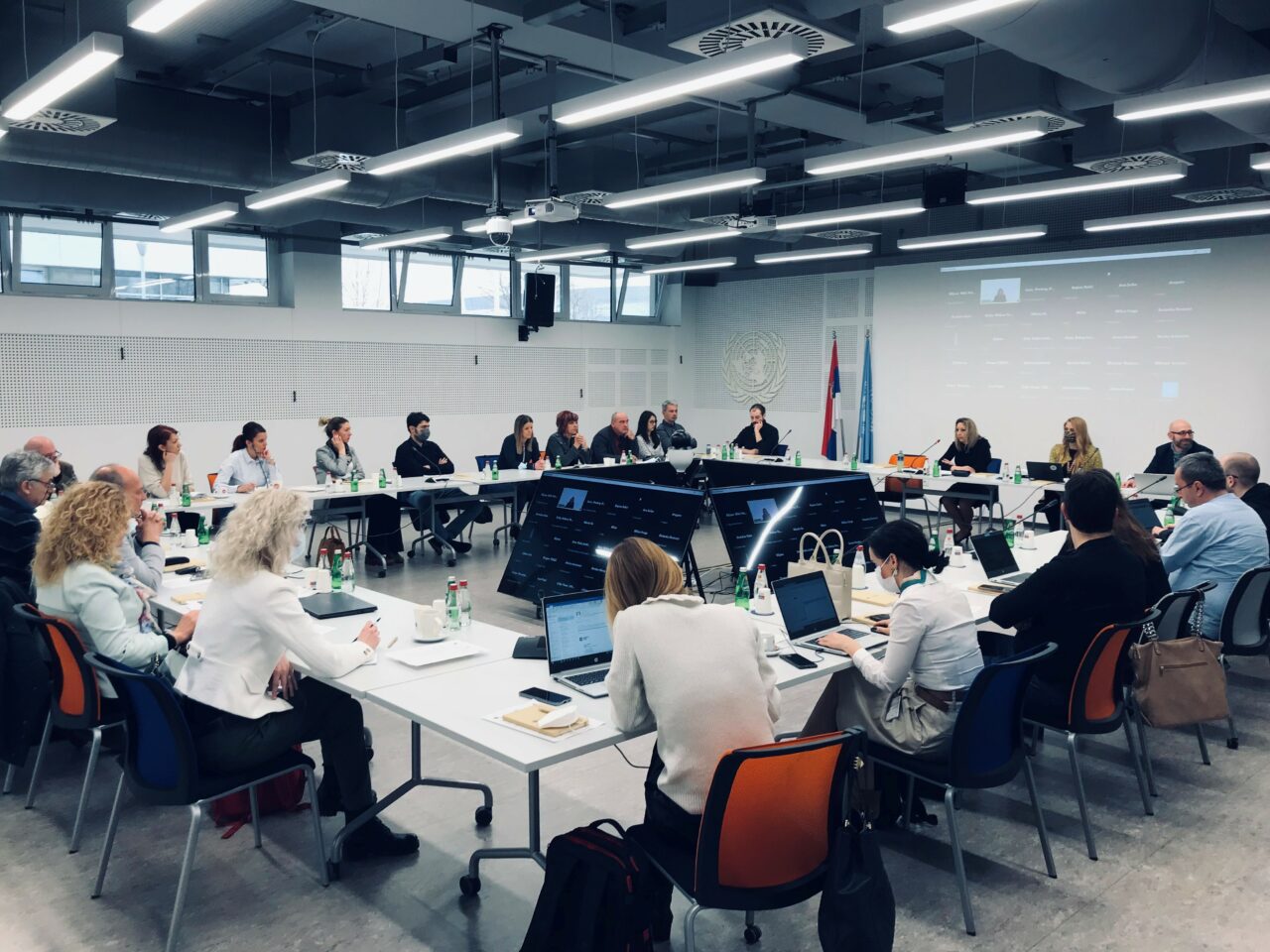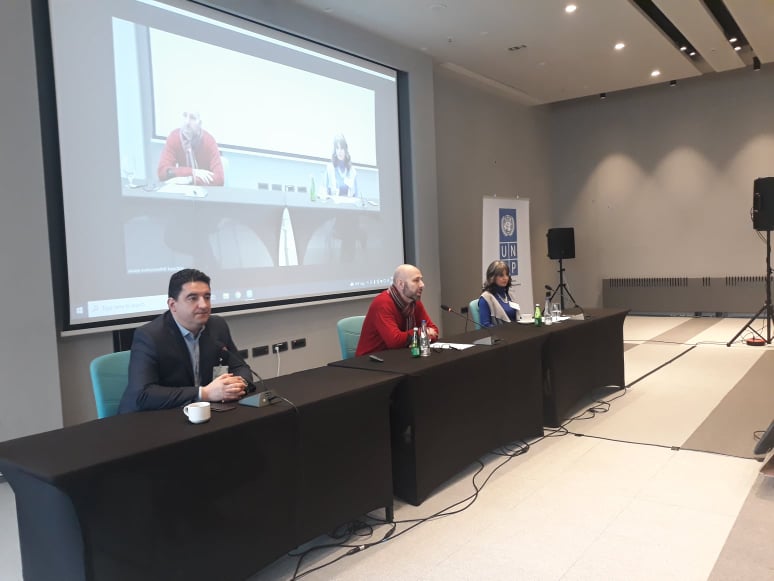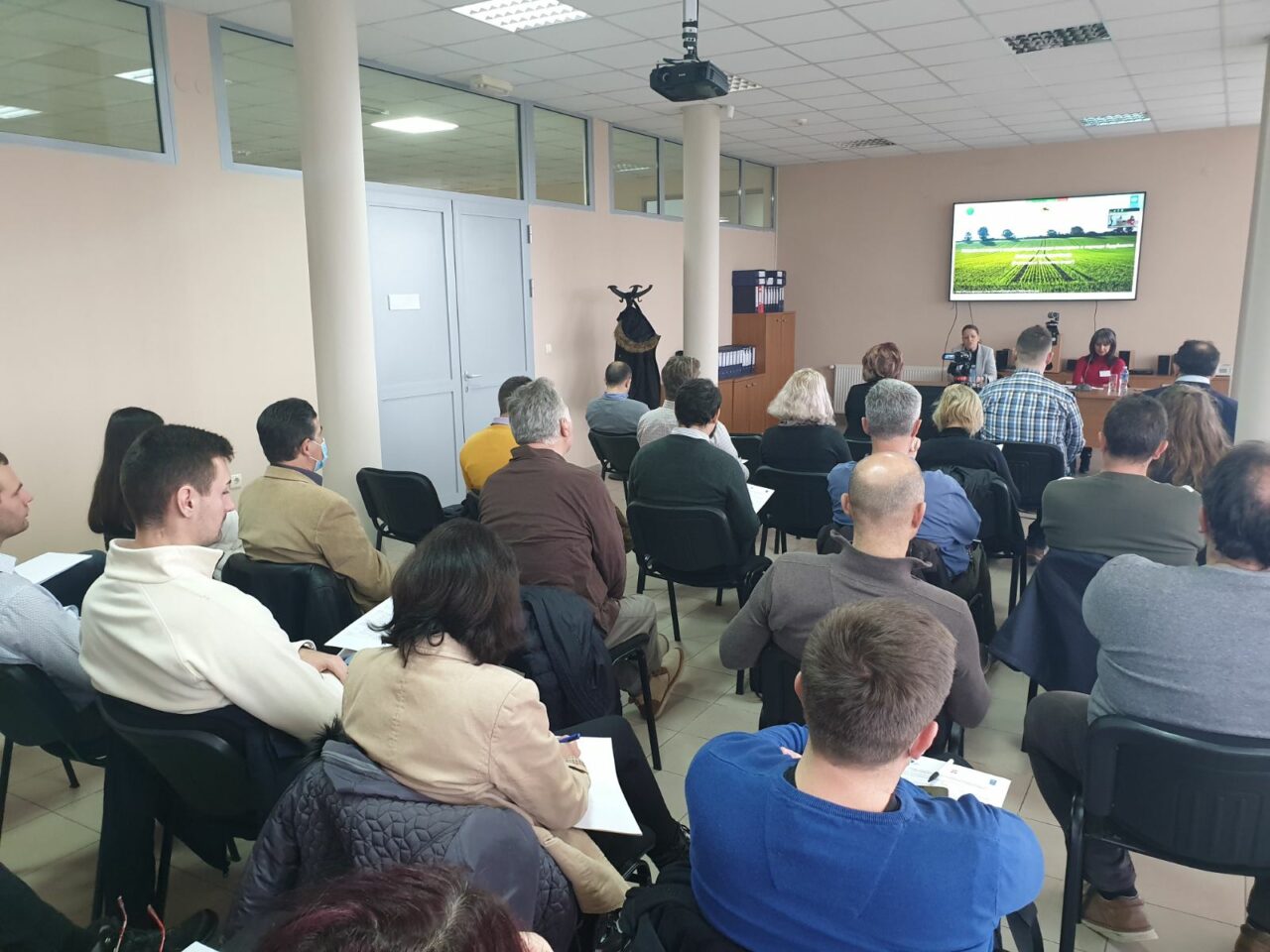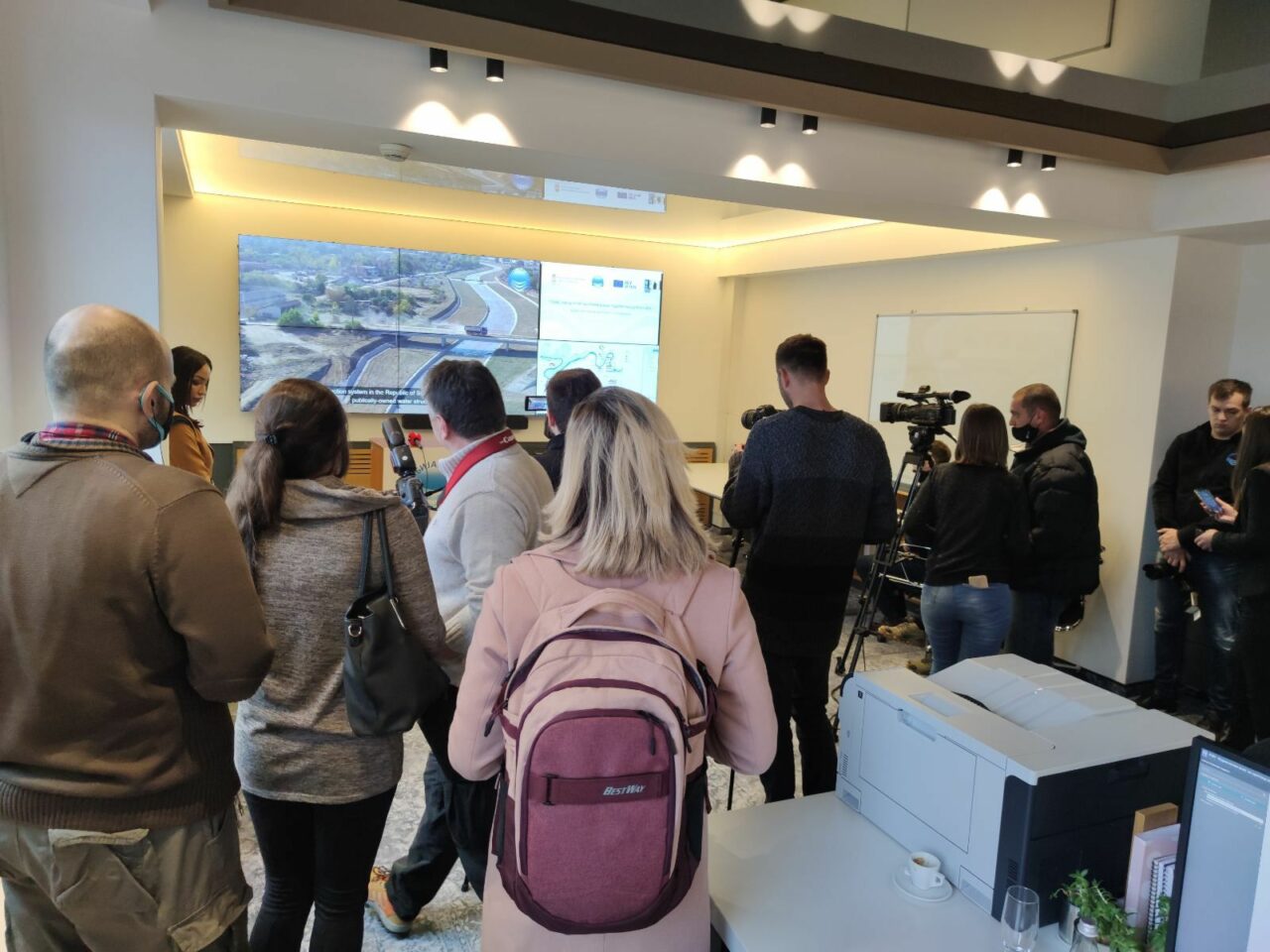-
Jan 11 2023 The launch of the Digital Climate Atlas of Serbia: A novel step towards planning adaptation to changed climate conditions
In Belgrade, on October 31, 2022, “The dialogue on Climate Change” was held, with the aim of encouraging all relevant actors in society to adequately and timely respond to the challenge of climate change. During the dialogue, the Digital Climate Atlas of Serbia was officially launched as part of the project “Improvement of medium- and long-term planning of adaptation measures to changed climate conditions in the Republic of Serbia – NAP project” which is being implemented by the United Nations Development Program (UNDP) in cooperation with the Ministry of Agriculture, Forestry and Water management and with the financial support of the Green Climate Fund (GCF).
The Digital Climate Atlas is an online platform based on meteorological and geospatial data, which provides insights into current and future climate changes, and for the first time provides comprehensive and freely available information about climate changes and their consequences in Serbia. The Digital Climate Atlas allows to monitor a large number of variables – temperature, precipitation as well as specific values such as the length of heat waves or the number of frosty days, at the level of the entire country, region or each individual municipality. The Atlas itself was developed in cooperation with the Faculty of Physics in Belgrade, and is based on data from the CORDEX initiative of the World Climate Research Program, as well as on data from the Republic Hydrometeorological Institute.
The Digital Climate Atlas was presented by Dr. Vladimir Đurđević, professor from the Faculty of Physics in Belgrade and a creator of the Digital Atlas, “The basic function of the portal is to support the state administration and local self-governments in adapting to climate change.” Professor Đurđević announced workshops for interested parties – scientists, businessmen, representatives of local governments, in order to master the use of the Atlas and use the obtained data for planning adaptation to climate change at the local or national level.
In the meantime, feel free to head over to the Digital Climate Atlas of Serbia and try using its functionalities yourself – there is also a user guide to help you get started.
-
Mar 18 2022 Round table on “Climatological data in the service of adaptation to changed climatic conditions” within the NAP project
A round table entitled “Climatological data in the service of adaptation to changed climate conditions” was held in Belgrade on March 16, 2022 within the project “Improvement of medium-term and long-term planning of measures to adapt to changed climate conditions in the Republic of Serbia – NAP project”. United Nations Development Agency (UNDP) in cooperation with the Ministry of Agriculture, Forestry and Water Management and with the financial support of the Green Climate Fund (GCF). The round table brought together 70 participants, including participants present via the zoom platform.
Just before the start, the participants were greeted by Miroslav Tadic, Program Analyst at the United Nations Development Program (UNDP) and Assistant Minister at the Ministry of Environment, Sandra Dokic, while Zorica Korac from UNDP presented the importance of climate data for the roundtable. improvement of medium-term and long-term planning of measures for adaptation to changed climatic conditions in the Republic of Serbia
Representatives of RHMZ, Predrag Zivadinovic and Ivica Nikolic presented information on hydrological observation systems of surface and groundwater, while Dragan Mihic presented climatological products of RHMZ and web portal DANUBECLIM. In the continuation, Slavica Radovanovic spoke about agrometeorological products – drought monitoring and forecasting, while Biljana Milic Petrović had a presentation on the topic of the index of climate extremes.
During the discussion, the participants of the round table touched on topics such as the importance of climatological data to improve the planning of adaptation measures, types of climatological data relevant to users, adequate data format, usability of data and ways of communicating with data. At the very end of the round table, Professor Vladimir Djurdjevic, from the Institute of Meteorology, University of Belgrade, presented the NAP web platform to support adaptation planning.
Attached are the presentations from the meeting:
Hidroloski osmatracki sistem_Površinske_vode
Klimatoloski-produkti-RHMZ.pdf
Indeksi klimatskih ekstrema RHMZ.pdf
-
Dec 21 2021 Nearly 500 participants at 10 workshops for strengthening institutional capacities for adaptation to climate change
The gathering at the Mona Plaza Hotel in Belgrade, which was attended by more than 60 participants, brought the number of local experts and representatives of local governments and bodies that analyzed the challenges of climate change to 500. The great response from the public who followed the workshops live or through a zoom platform from all parts of Serbia.
The gathering, which again focused on the proposed measures, but what the professional public is doing, best shows that there is an interested public dealing with climate change and that there is room for implementation of all measures in agriculture, water management, energy and infrastructure. This time as well, most attention is paid to the activities carried out with national professional, research and scientific institutions, as well as measures aimed at reducing the risk of disasters and natural disasters.
In addition to prevention and adaptation measures based on experiences, good practices and lessons learned at the local government level, the participants concluded that it is necessary to seek the best solutions and that all representatives of relevant public companies, agricultural professional services, teachers in agricultural and construction schools, as well as representatives of non-governmental organizations and the private sector.
Attached are presentations from the trainings:
-
Dec 16 2021 Trainings held on the topic of adaptation to climate change in agriculture within the NAP project
The sixth training in a row that follows the challenges of climate change organized by UNDP was held on December 14 through the zoom platform for the representatives of the Bor and Zajecar districts. The next day, the seventh training in a row was held in Krusevac, for participants from the Rasina and Moravian districts who followed the gathering live and via the zoom platform.
At the sixth and seventh gatherings, which were organized after Belgrade, Nis, Kragujevac, Vrdnik and Zlatibor, the most attention was aimed to measures of adaptation to the agricultural sector. Professors from the Faculty of Agriculture at the University of Belgrade spoke about adapting to the changed climatic conditions for fruit growing, viticulture, farming, animal husbandry, meadow and pasture.
Agriculture is by its nature is highly dependent on climate change. Various technological solutions are being developed and applied in order to reduce the dependence of agricultural production on unpredictable climatic conditions. In addition to prevention and adaptation measures based on experiences, good practices and lessons learned at the local government level, the trainings showed how necessary it is for domestic producers to adapt to new conditions and that agricultural production needs to adapt to climate change. to be carried out systematically, bearing in mind the threats that are coming.
Attached are presentations from the trainings:
Prilagođavanje sektora stočarstva klimatskim promenama
Potencijal i mogućnosti navodnjavanja u poljoprivredi
Uticaj klimatskih promena i mere adaptacije u voćarstvu
Uticaj klimatskih promena i mere adaptacije u vinogradarstvu
Uticaj klimatskih promena i mere adaptacije u ratarstvu
Uticaj klimatskih promena na livade i pašnjake i mere adaptacije
-
Dec 15 2021 Representatives of UNDP and Serbia water put into operation a new flood management system
Smart center for flood management was put into operation on 10 December 2021 within the project “Improvement of medium-term and long-term planning of adaptation measures to changed climate activities”, funded by the Green Climate Fund, and implemented by the United Nations Development Program. Center is based in headquarters of Public company Serbia Waters and its main duty is to minimize chances for flood and to reduce the effects of climate change in Serbia. On that occasion Zarko Petrovic, UNDP Program Analyst and Goran Puzovic, General Director Serbia Waters addressed the press and emphasized the importance of putting the center into operation.
